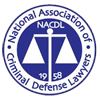Florida Felonies and Misdemeanors
Crimes are either categorized as a felony or a misdemeanor. A felony offense is considered more serious than a misdemeanor and calls for a harsher maximum sentence. The decision to prosecute an offense as a felony or misdemeanor is made by the Florida District Attorneys. Both felonies and misdemeanors can appear on your criminal record and place limits on future career, education, and many other opportunities.
Felonies
A felony is the most serious type of crime you can commit within the legal system. A crime that is punishable by more than one year in prison or by death is usually considered as a felony. Additionally, a person is convicted of a felony, will suffer restrictions on their civil rights. Felons are not allowed to serve on juries or own or keep firearms. In some jurisdictions, felons are not allowed to vote or practice certain professions. Punishments for felony convictions depend upon the type of crime committed and its severity. Most felonies are punishable with over a year of jail time, large monetary fines, lengthy probation terms, house arrest, and community service.
Misdemeanors
Misdemeanor offenses are considered less serious than felony offenses. A crime that is punishable by less than a year in prison is typically considered a misdemeanor. Misdemeanors are punishable by probation, jail time of less than a year, community service, counseling, restitution, and monetary fines.
Whether Felony or Misdemeanor, an arrest can be an intimidating if not frightening experience. Our goal, if you engage our services, is to inform you as to the criminal process, reassure as to your rights and protections against excesses or over-reaching by the state, and defend you against the charges you are facing. We would welcome the opportunity to speak with you during a free consultation in order to evaluate your case and explain how we can help you. Please call for an appointment.




